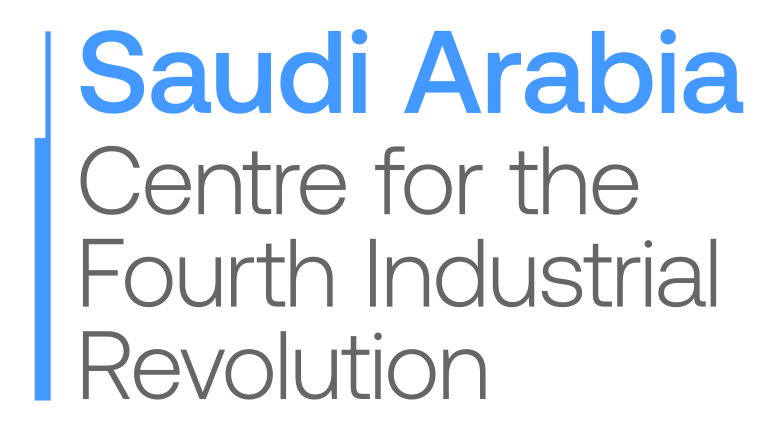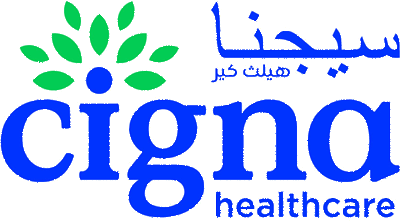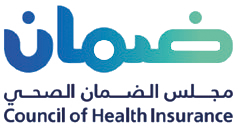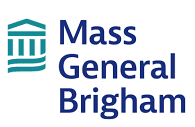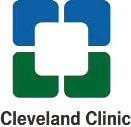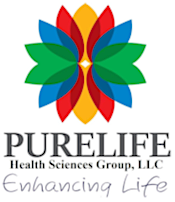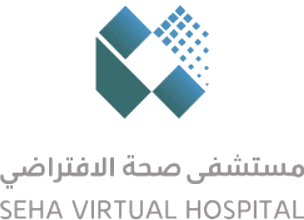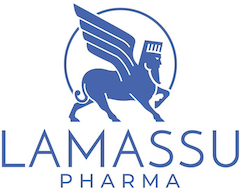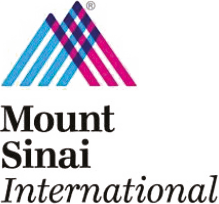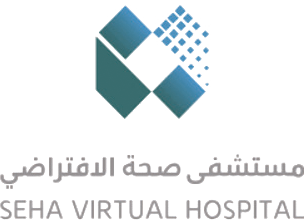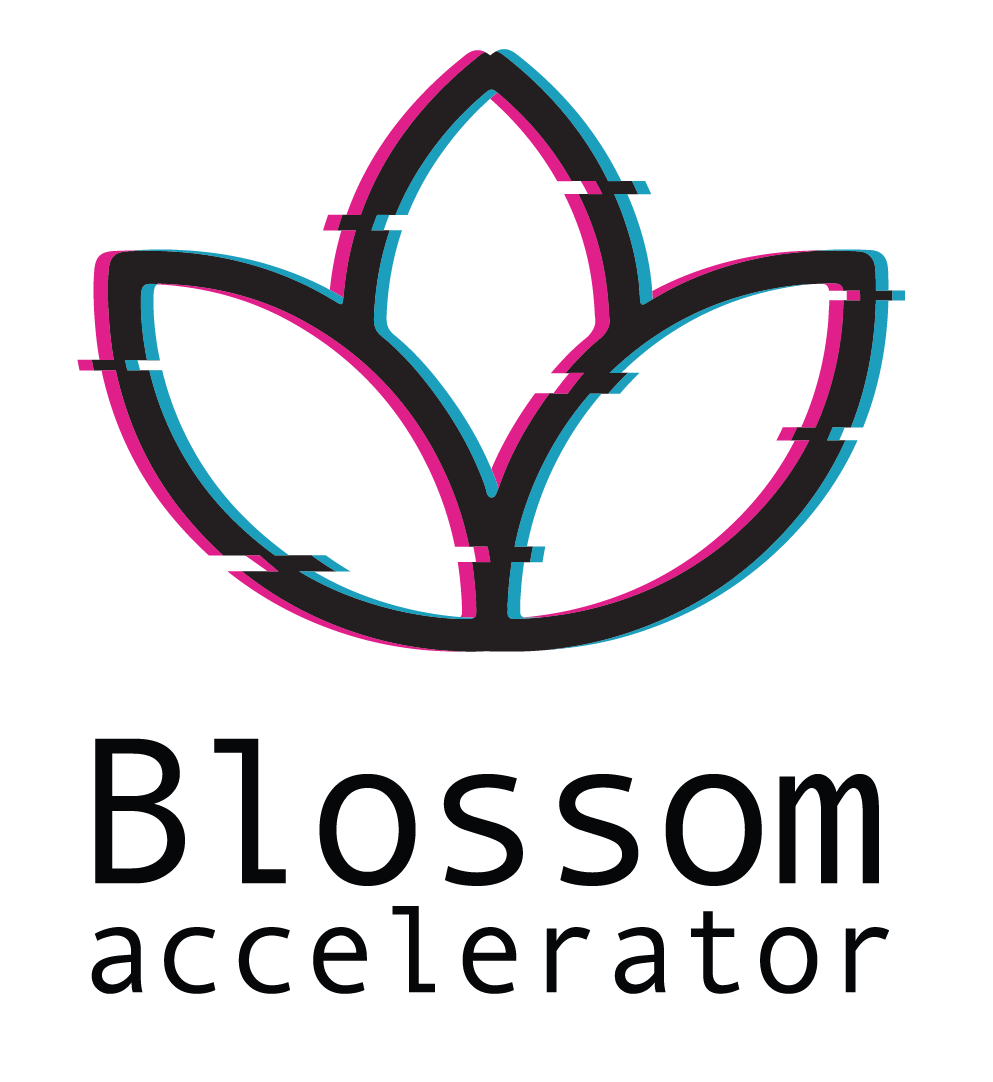No two patients are the same. However, many are treated the same way. This generic approach limits the efficacy of treatments. This was once the ground on which to develop personalized medicine based on differences in genetics.
There is a caveat that still treatment is static and rather arbitrary. The next generation medicine brings self-correction to medication and treatments. By monitoring the patient’s physiology, we evaluate the treatment and plan the next step. This self-learning intelligence medicine promises to deliver the most optimized cure and may represent future of medicine.
Further, the capability of AI in revolutionizing the current diagnostic and prognostic measures through clinical laboratories is inevitable. Given the central role of physicians and clinicians as the main governors of patient’s health territory, it is a dire need to further dissect the implications and limitations of AI in better interpretation of patient's laboratory data. Optimal transformation of such paradigm requires a good level of understanding and coordination between members of healthcare providers and AI community, so that more desirable clinical outcomes and higher life quality could be achieved.
The latest trends in healthcare encompass a dynamic confluence of factors reshaping the industry landscape, spanning insurance, regulation, and technology. As these trends converge globally and locally, the healthcare industry stands at a pivotal juncture poised to enhance the quality, access, affordability, and experience of care everywhere.
Insurers are increasingly incentivizing preventive measures and holistic wellness initiatives while collaborative efforts between insurers and healthcare providers are developing innovative systems that prioritize outcomes over volume, drive efficiency and cost-effectiveness while enhancing patient satisfaction. Regulatory frameworks worldwide are having to evolve quicker than ever to accommodate the rapid pace of technological advancement, balancing innovation with patient safety. At the forefront of medical technology, groundbreaking advancements are redefining the boundaries of possibility. From precision medicine and genomics to robotics and virtual reality, emerging tech is empowering clinicians with unprecedented insights and tools to deliver personalized, targeted care.
Ultimately, the next era of dynamic innovation holds promise for a healthcare ecosystem that harnesses these developments for a more resilient, patient-centric, and digitally-driven future than ever before, benefiting individuals and communities worldwide. Stakeholders hold a critical role in developing roadmaps that will pave the way for this transformation through collaborative efforts and knowledge sharing.
Time-critical investments that advance health and business in the Middle East present a new opportunity to drive significant progress in the region's healthcare landscape. By making targeted investments in key areas, such as healthcare infrastructure, digital health, medical tourism, and biotech investors can contribute to improving healthcare access, improving patient experience, enhancing patient outcomes, and stimulating economic growth. The Middle East is experiencing rapid population growth, increasing healthcare demands, and a rising focus on health and wellness, making it an attractive market for such investments.
Investing in healthcare infrastructure can address the growing need and demand towards moving healthcare out of healthcare facilities and into people’s home, especially to remote or underserved areas, with the rise of digital technology and innovation Developing hospitals, clinics, and specialized centers can also improve access to care and bolster the region's healthcare capacity. Importantly, investments in digital health technologies, telemedicine and medical tourism can revolutionize healthcare delivery, enabling remote consultations, efficient health information exchange, and remote patient monitoring. This technology driven approach can enhance healthcare accessibility and efficiency while leveraging the Middle East's high smartphone penetration rates. Furthermore, investments in medical tourism can tap into the region's potential as a healthcare destination, attracting international patients and boosting local economies. Lastly, supporting the growth of the pharmaceutical biotech industry in the Middle East can contribute to drug discovery, manufacturing, and access to essential medications, fostering health advancements and economic development.
Overall, time-critical investments in advancing health and business in the Middle East present a new opportunity to address the region's healthcare challenges and leverage its potential for growth. By strategically allocating resources and collaborating with local stakeholders, investors can make a meaningful impact, which in turn drives economic progress in the region.
The rise and cost of untreated mental health issues pose significant challenges to individuals, communities, and societies at large. As the prevalence of mental health conditions increases, the burden of untreated mental illness becomes more apparent. Untreated mental health issues can lead to severe consequences, including impaired quality of life, reduced productivity, strained relationships, and increased healthcare costs.
The rise in untreated mental health issues can be attributed to various factors, including stigma, limited access to mental healthcare services, and a lack of awareness or understanding of mental health. Stigma surrounding mental health often prevents individuals from seeking help or discussing their struggles openly. This perpetuates a cycle of silence and avoidance, leading to untreated conditions and worsening symptoms over time. Additionally, limited access to mental healthcare services, especially in underserved areas, can prevent individuals from receiving timely and appropriate treatment. This further exacerbates the impact of untreated mental health issues.
The cost of untreated mental health issues extends beyond the individual and has societal implications. Untreated mental health conditions contribute to reduced productivity and absenteeism in the workplace, resulting in economic losses. Mental health issues also strain healthcare systems, with increased emergency room visits, hospitalizations, and utilization of other healthcare resources. The indirect costs, such as the impact on families, communities, and the criminal justice system, are significant as well.
Addressing the rise and cost of untreated mental health issues requires comprehensive strategies and a multi-pronged approach. These include reducing stigma through education and awareness campaigns, improving access to mental healthcare services, integrating mental health into primary care settings, and promoting early intervention and prevention efforts. By investing in mental healthcare infrastructure, training healthcare professionals, and implementing evidence-based interventions, societies can mitigate the consequences of untreated mental health issues, improve outcomes for individuals, and alleviate the economic burden on healthcare systems and society.
Hope Abilitation Medical and rehabilitation Therapy center in Dubai brings multiple specialties from around the world under one roof with special
focus on intensive therapy. Our team of multidisciplinary physiotherapists, occupational therapists, speech therapists, feeding therapists, psychomo-
tor therapists, ABA therapists, orthopedics, Orthotists and Prosthetists pick up every patient’s case with utmost care. We deeply analyze every chal-
lenge faced by children, consider their history and then proceed with treatment. We believe in an intensive therapy model to enhance neuroplasticity.
Artificial Intelligence (AI) and blockchain are two transformative technologies reshaping the future of healthcare on a global scale. AI is revolutionizing healthcare by enabling advanced data analysis, predictive modeling, and personalized medicine. AI algorithms can analyze vast amounts of patient data, identify patterns, and provide insights that aid in disease diagnosis, treatment planning, and drug discovery. Machine learning algorithms can continuously learn and improve, leading to more accurate diagnoses and optimized treatment plans. Moreover, AI-powered chatbots and virtual assistants can provide 24/7 support, enhancing the overall healthcare experience. AI has the potential to revolutionize healthcare delivery, improve patient outcomes, and optimize resource utilization.
Blockchain technology is also making significant strides in healthcare by addressing critical challenges such as data interoperability, security, and privacy. Blockchain provides a decentralized and transparent platform for securely storing and sharing healthcare data. It enables secure and seamless sharing of patient records, ensuring data integrity, privacy, and control. Blockchain can streamline healthcare operations by enabling secure transactions, smart contracts, and efficient supply chain management. Additionally, it can facilitate the integration of Internet of Things (IoT) devices, wearables, and other health monitoring technologies, enabling real-time data collection and remote patient monitoring. The decentralized nature of blockchain technology can foster collaboration among different stakeholders, promote data sharing for research, and improve population health management.
Together, AI and blockchain are reshaping the healthcare landscape globally. They have the potential to improve healthcare outcomes, enhance patient experiences, and drive operational efficiency. As these technologies continue to evolve and find wider adoption, the future of healthcare holds great promise with AI-driven diagnostics, personalized medicine, secure data sharing, and more effective healthcare systems.
Investments in "smart" hospitals with new and improved healthcare facilities are gaining momentum as urban areas increasingly prioritize the integration of technology and data-driven solutions into their infrastructure. These investments aim to enhance healthcare accessibility, quality, and efficiency within cities, leverage technologies such as Internet of Things (IoT), data analytics, telemedicine, and AI to transform healthcare delivery. For example, investment in telemedicine platforms enables virtual consultations, remote monitoring, and timely access to healthcare services. This technology-driven approach allows healthcare providers to reach a larger population and offer more personalized care. Furthermore, investments in data analytics and AI enable cities to analyze vast amounts of healthcare data, identify trends, and make informed decisions for resource allocation, preventive measures, and population health management. These investments contribute to improved patient outcomes, reduced healthcare costs, and a more sustainable healthcare system.
The returns on investments in smart hositals are significant. By leveraging technology and data, these investments lead to more efficient use of resources, reduced healthcare expenditures, and improved health outcomes. Smart "hospitals" enable proactive healthcare management through early detection and intervention, leading to better disease prevention and management. The use of IoT devices and wearables allows for real-time health monitoring, empowering individuals to take control of their health and engage in preventive measures. Additionally, "smart hospitals" enhance the coordination and collaboration among healthcare providers, resulting in streamlined care delivery, reduced medical errors, and improved patient experiences. The integration of smart healthcare facilities into the broader urban ecosystem creates a holistic approach to healthcare that benefits both residents and the city as a whole.
NEOM is a new urban area planned by the Kingdom of Saudi Arabia to be built in its northwestern Tabuk Province in a total planned area of 26,500 km (10,200 sq mi) to include multiple regions, including a floating industrial complex, global trade hub, tourist resorts and a linear city powered by renewable energy sources. It was launched in 2017 by Saudi crown prince Mohammed bin Salman.
NEOM will become a world leader in advanced healthcare technology and services, building an integrated health, well-being and biotech ecosystem that goes above and beyond traditional medical care — an unparalleled end-to-end system entirely centred on the individual. With world-class treatment and inclusive care, NEOM will harness innovative technology, research and education to become a global benchmark in the field.
NEOM Health and Well-Being will pioneer healthcare by implementing groundbreaking systems, regulations and infrastructure. NEOM's experts are at the forefront of the shift toward human-first medical treatment.
Cancer prevention and treatment represent a compelling case study in health advancement, patient-centered care, and cutting-edge personalized therapies. Over the years, advancements in cancer research and treatment have transformed the landscape of cancer care, leading to improved outcomes and enhanced patient experiences. Prevention efforts, such as public health campaigns promoting healthy lifestyles and early detection screenings, play a critical role in reducing the incidence and burden of cancer. By raising awareness, promoting risk reduction strategies, and facilitating early diagnosis, cancer prevention efforts empower individuals to take control of their health and minimize their cancer risk.
When it comes to cancer treatment, patient-centered care has become a cornerstone of modern oncology. Personalized medicine, driven by genomic profiling and molecular diagnostics, enables healthcare providers to tailor treatment plans to the specific characteristics of a patient's cancer. This approach allows for more precise therapies, minimizing unnecessary side effects and maximizing treatment effectiveness. Furthermore, patient-centered care involves shared decision-making, in which patients are actively involved in choosing treatment options based on their preferences, values, and goals. This collaborative approach not only improves patient satisfaction but also leads to better treatment adherence and outcomes.
Cutting-edge personalized therapies have revolutionized cancer treatment. Precision oncology strategies, such as targeted therapies, immunotherapies, and gene therapies, are transforming the way cancers are treated. Targeted therapies specifically attack cancer cells based on their molecular characteristics, leading to more effective and less toxic treatments. Immunotherapies harness the body's immune system to recognize and eliminate cancer cells, offering new possibilities for long-term remission and improved survival rates. Gene therapies, including CAR-T cell therapy, involve genetically modifying a patient's immune cells to enhance their ability to fight cancer. These breakthrough therapies exemplify the potential of personalized medicine in delivering highly effective and individualized cancer treatments.
In summary, the case of cancer prevention and treatment highlights the remarkable progress in health advancement, patient-centered care, and personalized therapies. Through prevention efforts, patients are empowered to reduce their cancer risk and seek early detection. Patient-centered care ensures that treatment decisions align with individual patient needs and preferences. Cutting-edge personalized therapies leverage genomic information and innovative approaches to target cancer cells with precision. The ongoing advancements in cancer care underscore the importance of a comprehensive and patient-centric approach in improving outcomes and transforming the landscape of cancer prevention and treatment.
Assessing and investing in Middle East pharmaceutical markets hold significant importance due to several
factors. The Middle East region is experiencing population growth, rising healthcare spending, and an
increasing burden of chronic diseases. These factors drive the demand for pharmaceutical products and create
opportunities for market growth. By assessing the Middle East pharmaceutical markets, investors can identify
market gaps, understand the local healthcare landscape, and tailor their investment strategies accordingly.
Investing in these markets allows pharmaceutical companies to expand their market presence, provide
essential medications to the population, and contribute to improving public health.
Secondly, the Middle East region has been making efforts to strengthen its domestic pharmaceutical
manufacturing capabilities. Several countries in the region have implemented initiatives to reduce
dependency on imported drugs and encourage local production. This presents an opportunity for investors to
support and participate in the growth of the regional pharmaceutical industry. Investing in local
manufacturing facilities, research and development centers, and partnerships with local pharmaceutical
companies can not only yield financial returns but also contribute to job creation, technology transfer, and
the overall economic development of the region. Furthermore, assessing the Middle East pharmaceutical
markets helps investors navigate the regulatory landscape, understand pricing and reimbursement policies,
and establish partnerships with healthcare providers and distributors, ensuring a solid foundation for
successful investments.
In summary, assessing and investing in Middle East pharmaceutical markets are crucial due to the region’s
population growth, increasing healthcare needs, and the emphasis on domestic pharmaceutical manufacturing.
By strategically investing in these markets, pharmaceutical companies can address local healthcare demands,
contribute to regional economic growth, and establish long-term partnerships. Evaluating market dynamics,
regulatory frameworks, and local healthcare priorities enables investors to make informed decisions and
capitalize on the growing opportunities in the Middle East pharmaceutical sector.
Private equity and academic medicine, when combined, can form an innovative and disruptive power couple that drives transformative advancements in the healthcare industry. Private equity firms bring financial resources, business acumen, and operational expertise, while academic medicine institutions contribute cutting-edge research, clinical expertise, and a commitment to education. Together, they have the potential to revolutionize healthcare delivery, technology adoption, and patient outcomes.
Private equity investments in academic medicine can provide the necessary funding to accelerate research and development, expand infrastructure, and drive innovation. This infusion of capital enables academic medical centers to invest in state-of-the-art technologies, attract top talent, and establish centers of excellence in specialized fields. Private equity firms bring strategic guidance and operational efficiency to optimize the financial performance of these institutions, allowing them to focus on their core mission of research, education, and patient care. By collaborating with private equity partners, academic medicine can leverage their expertise in scaling businesses, streamlining operations, and maximizing returns on investment.
The partnership between private equity and academic medicine can also foster disruptive innovations in healthcare. Private equity firms often have a pulse on emerging technologies and market trends, while academic medicine institutions have a deep understanding of clinical needs and research breakthroughs. Together, they can identify and invest i groundbreaking healthcare solutions, such as digital health platforms, precision medicine advancements, and novel therapies. This collaborative approach can lead to the development of transformative healthcare models, novel treatment modalities, and improved patient experiences. The disruptive power couple of private equity and academic medicine has the potential to challenge traditional healthcare paradigms, drive industry wide change, and ultimately improve health outcomes on a global scale.
In summary, the partnership between private equity and academic medicine brings together financial resources, operational expertise, research capabilities, and clinical excellence. This collaboration has the potential to disrupt the healthcare industry, driving innovation, transforming healthcare delivery, and improving patient outcomes. By combining the strengths of private equity firms and academic medicine institutions, this power couple can shape the future of healthcare by investing in cutting-edge technologies, fostering disruptive innovations, and reimagining the way healthcare is delivered and experienced.
The world has recognized that civilization has entered a decisive decade for addressing the impending climate crisis due to a convergence of urgent factors that demand immediate action. First and foremost, the scientific consensus on climate change is unequivocal, with overwhelming evidence indicating that human activities, particularly the burning of fossil fuels, are driving global temperatures to dangerous levels. The Intergovernmental Panel on Climate Change (IPCC) and numerous other reputable scientific institutions have issued alarming warnings about the escalating impacts of climate change, including more frequent and severe heat waves, hurricanes, droughts, and flooding, all of which we have experienced globally just this summer. The consequences are already being felt, with communities around the world experiencing the devastating effects of extreme weather events and rising sea levels.
Innovation will be a key factor incorporating climate technologies that will help reduce greenhouse gas emissions and incorporate renewable energies. To adapt to the adverse effects of climate change, additional innovations required will mandate the use of climate technologies such as drought-resistant crops, early warning systems and sea walls. Also among the most promising and having the biggest impact will be advances from photovoltaics, AI and big data, distributed energy storage systems and hydro power, followed by wind energy, bioenergy, grid integration, green hydrogen, advanced robotics, and blockchain. Each will provide significant economic investment while creating new business opportunities.
Additionally, there is a growing recognition of the need for swift action on climate change at the global level. The Paris Agreement, which Saudi Arabia ratified along with nearly every country in the world, set ambitious targets to limit global warming to well below 2 degrees Celsius above pre-industrial levels.
As we approach the mid-2020s, countries are under increasing pressure to meet their emission reduction commitments and accelerate the transition to a low-carbon economy. Public awareness and activism on climate change have also surged, with a younger generation demanding immediate action to secure their future and the health of the planet. With the window of opportunity for effective climate action rapidly closing, the next decade is seen as a "make-or-break" period where decisive and "impactful measures" must be taken to mitigate the worst consequences of climate change and help accelerate transition to a sustainable, carbon-neutral future.
According to the NIH, Autism Spectrum Disorder (ASD) is one of the most common neurodevelopmental disorders in the world today. Autism has increased by a minimum of 10 times in the last 40 years and is currently growing exponentially.
Currently, the primary methods of treatment are applied behavior analysis (ABA) and speech therapy. These therapies are, at best, marginally effective and extremely expensive. A 2014 study done at the University of Pennsylvania found that the lifetime cost to treat autism for one individual is $1.4 million. That number jumps to $3.57 million for a person who also has intellectual disability. Obviously, these costs have increased.
There exists today a new answer for autistic and neurodevelopmentally challenged people to live a good quality of life and function normally in society. TEKNON is very cost effective with improved results that are typically identifiable in 3-12 weeks.
As healthcare leaders and executives, we are at the forefront of driving innovation in healthcare, shaping the trajectory of the industry for years to come. This roundtable discussion delves deep into the evolving landscape of healthcare innovation and its far-reaching impacts. Our focus encompasses a diverse range of critical areas, from the adoption of cutting-edge technologies such as AI to the emergence of new care models. We will also explore the imperative of patient-centered healthcare system integration and transformative research in shaping the future of healthcare delivery.






